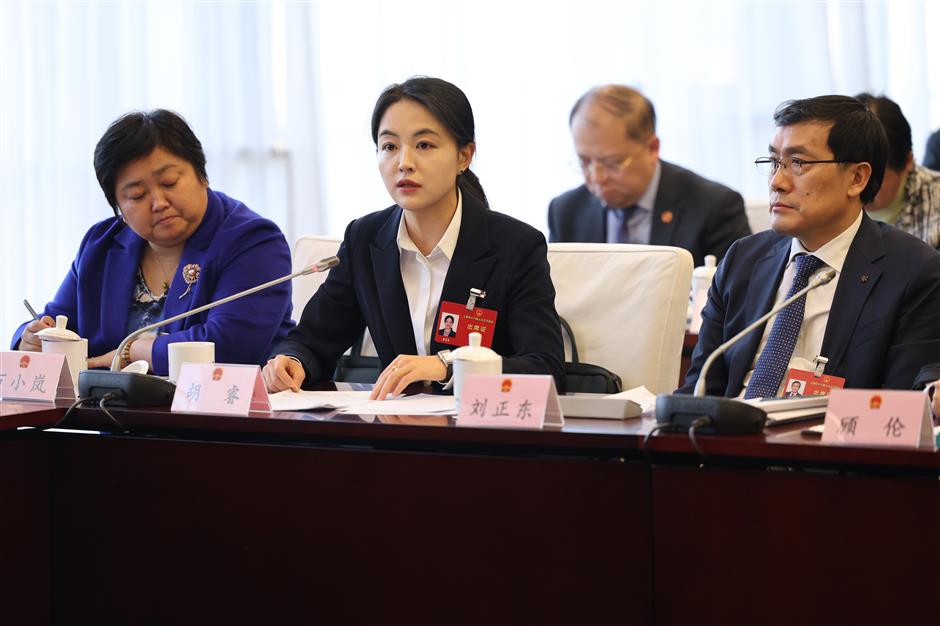政府新闻
上海市呼吁简化外国人才的签证和工作许可 2025-01-17
A Shanghai lawmaker has proposed relaxing visa rules and streamlining the application procedure to attract foreign talent.
"Our mobile game journey began over a decade ago," said Hu Rui, a deputy from Xuhui District and one of Lilith Game's founders.
"Overseas and domestic markets differ greatly, with players' needs varying across regions and countries.To better serve gamers worldwide, we couldn't have done it without the help of our talented foreign colleagues."
She noted that as the gaming industry integrates with technologies like AI, many industrialized countries and regions are luring international students and tech experts with their superior education and research systems and high-tech clusters.
"Opening-up is Shanghai's greatest strength, and we should leverage this advantage to enhance our attractiveness to high-quality resources and talent, drawing them to work and innovate in China," Hu said.
Hu found the recruitment process difficult despite a strong desire for international talent.
"My research showed that China has a comprehensive institutional system for foreign talent to work in the country. However, this system is complex, and two points particularly struck me," Hu said.

Hu Rui, a Xuhui District deputy, is a co-founder of Lilith Game, a game firm based in Shanghai.
One issue is the cumbersome process of obtaining work and residence permits for foreign talent in China.
"After arriving in China, foreign talent need to obtain a work permit through the State Administration of Foreign Experts Affairs and then apply for a work-related residence permit through the local exit-entry administration department," Hu said.
"The current process requires each step to take at least one month to complete before they can legally start working."
Shanghai pioneered a one-stop process for foreigners' work and residence permits, making it easier for international talent to work here.
"However, the service is only open to Category A talent. Category A foreign talent accounts for less than 20 percent of all applications," Hu said.
She pointed out that most young talent beginning their careers falls into Category C. Only a tiny number can meet Category B standards.
Also, she called for more flexible and open talent recruitment policies.
"For example, we can set up a pilot program in the Pudong New Area, which allows high-end talent to enter the country first and seek jobs later with individual work permits, allowing them to freely change employers during their stay in China and providing a buffer period to hunt for new jobs after leaving their current ones," Hu said.
"Additionally, foreigners should not need to reapply for residence permits if they are pursuing degrees or continuing education at Shanghai universities and intend to work in Shanghai after graduation."

An expat uses a digital device at the Shanghai Hongqiao One-stop Service Center for Overseas Talents.
Source: Shanghai Daily
